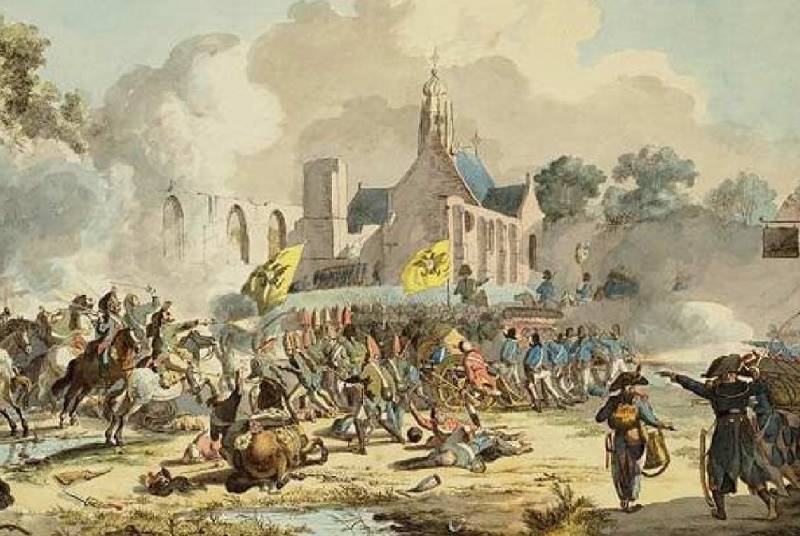The failed Dutch expedition of 1799: did Russia need to participate in this operation

The Dutch expedition is an Anglo-Russian operation that began in 1799 and turned into a complete failure for our country. Its goal was to liberate the territory of the Netherlands from the French troops who had captured the country four years earlier and renamed it the Batavian Republic.
The Russian Empire, by the decision of Paul I, entered into a confrontation with the French conquerors on the side of England, entering into an alliance with "Foggy Albion". But, is it really necessary for our country?
It is worth noting that the landing operation, which was carried out by the allied forces of Russia and Britain, initially went according to a very strange scenario.
After the Russian-English landing, despite the fierce resistance of the Dutch, did land on the shore, Russian General Ivan Essen, commander of the 17th army of the Russian Empire in this operation, refused to leave the ship, arguing that in order to meet the Russian troops not prepared all the proper honors. As a result, part of the ships of the squadron went to Textel and got up for repairs.
It is worth emphasizing here that the appointment of Essen as commander in this operation was very doubtful, since even among his subordinates he was known as stupid, short-sighted and arrogant.
However, the operation continued. At the same time, the aforementioned delay in reinforcements turned out to be fatal for the landing. Ahead of the practically abandoned French-Dutch fleet soldier had a long and cold winter of 1779-1800.
The losses of the Russian troops during the absolutely disastrous operation amounted to more than 5 thousand people out of 17 thousand participants in the campaign.
But back to the main point. Did the Russian Empire need this operation. Paul I concluded an agreement with the British in order to oppose his own policy to that which was during the reign of his mother Catherine II. By the way, after the failure in Holland, diplomatic relations between the countries were terminated.
In addition, Paul I in this campaign was inspired by Ushakov's victories over the French in the Mediterranean. For some reason, the emperor decided that it would be the same in Holland, despite the obvious unpreparedness of the troops for such a war and the appointment, to put it mildly, of an unsuitable commander in the person of Essen.
Consequently, the motives for the participation of the Russian Empire in the Dutch expedition were due more to the personal motives of the ruler than to the benefit for the state.
The British are another matter. Their interests lay in the return to power of the Orange dynasty in Holland, which would significantly strengthen the influence of Britain itself in the region.
As a matter of fact, the saying immediately comes to mind here: "England has no permanent enemies and permanent friends, it has only permanent interests."
By the way, about the latter. Despite the generality of the aforementioned operation, England was still able to benefit from it. At the beginning of the operation, she managed to take possession of the Dutch fleet, which Britain never returned to its rightful owners.
Information